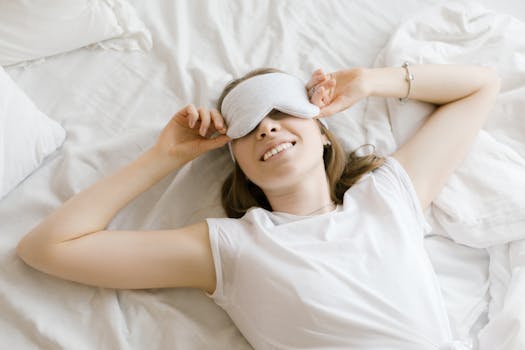
“
Creating a Balanced Sleep Routine for Better Rest
Creating a balanced sleep routine is essential for better rest and overall well-being. Creating a balanced sleep routine can help improve the quality of your sleep, increase energy levels, and enhance mental and physical health. In this article, we will explore the importance of a balanced sleep routine and provide tips on how to create one.
Why is a Balanced Sleep Routine Important?

A balanced sleep routine is crucial for our overall health and well-being. During sleep, our body repairs and regenerates damaged cells, builds bone and muscle, and strengthens our immune system. Additionally, sleep helps to improve cognitive function, including attention, memory, and problem-solving skills. A lack of sleep or poor sleep quality can lead to a range of health problems, including obesity, diabetes, cardiovascular disease, and mental health disorders. For more insights on maintaining health, check our post on breakthroughs in health and wellness.
How to Create a Balanced Sleep Routine

Creating a balanced sleep routine involves establishing a consistent sleep schedule, creating a sleep-conducive environment, and developing relaxing bedtime habits. Here are some tips to help you create a balanced sleep routine:
- Establish a consistent sleep schedule: Go to bed and wake up at the same time every day, including weekends.
- Create a sleep-conducive environment: Make your bedroom a sleep sanctuary by ensuring it is dark, quiet, and cool.
- Develop relaxing bedtime habits: Engage in relaxing activities, such as reading, meditation, or yoga, to help you wind down before bed.
- Limit exposure to screens before bed: The blue light emitted by smartphones, tablets, and computers can suppress melatonin production, making it harder to fall asleep.
- Get regular exercise: Regular physical activity can help improve sleep quality, but avoid vigorous exercise within a few hours of bedtime.
Additional Tips for a Balanced Sleep Routine

In addition to establishing a consistent sleep schedule, creating a sleep-conducive environment, and developing relaxing bedtime habits, there are several other tips that can help improve the quality of your sleep. These include:
- Avoid caffeine and nicotine: Both caffeine and nicotine can disrupt sleep patterns and make it harder to fall asleep.
- Limit alcohol consumption: While a small amount of alcohol may help you fall asleep, excessive consumption can disrupt sleep patterns and reduce sleep quality.
- Try progressive muscle relaxation: This technique involves tensing and relaxing different muscle groups to help you relax and fall asleep.
- Get some morning sunlight: Exposure to natural light in the morning helps regulate your circadian rhythms, which can help improve sleep quality.
Conclusion

Creating a balanced sleep routine is essential for better rest and overall well-being. By establishing a consistent sleep schedule, creating a sleep-conducive environment, and developing relaxing bedtime habits, you can improve the quality of your sleep and wake up feeling rested and refreshed. Remember to also limit exposure to screens before bed, get regular exercise, and try additional techniques, such as progressive muscle relaxation and getting morning sunlight, to help improve sleep quality. For more tips on enhancing your lifestyle, explore our article on upcycling furniture for a unique touch.
See more:
https://www.sleepfoundation.org/
https://www.healthline.com/nutrition/sleep-routine
https://www.mayoclinic.org/healthy-lifestyle/adult-health/expert-answers/sleep/faq-20402428



